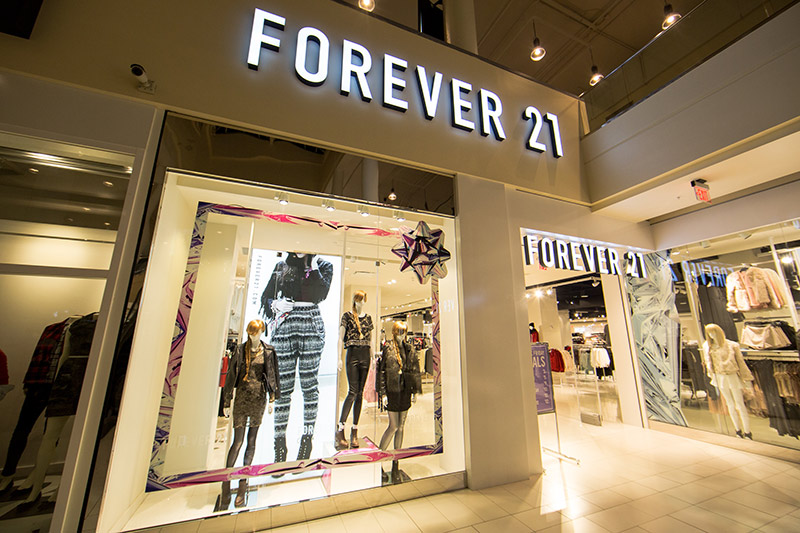为帮助困难租户,商场业主变身贷款者,这可行吗?

|
习惯于向经营不善的零售商提供减租待遇的商场业主如今正在思考一种新的策略,以提振自己所在的这一日渐衰弱的行业:从事借贷业务,向那些经营困难的租户提供贷款。 据知情人士透露,专业银行PJ Solomon与多个商场业主进行了探讨,内容涉及实施此类策略来帮助陷入困境的零售商Forever 21 Inc.。这种策略可能会成为该行业未来交易的范例。 这位知情人士称,这些讨论的焦点在于将租金和其他负债转换为担保债务,这样便可以为经营不善的公司提供一些喘息的空间,从而免于对簿公堂。由于讨论并不对外公开,因此该人士要求不透露其个人信息。 他们说,即便零售商随后破产了,这类安排也可以让业主在重组过程中获得更大的话语权,因为出借方在破产中有着更高的优先权。业主可以使用其优先权进行资产竞标,并用其未偿赔款来置换所有权。 对于经历了一波又一波闭店潮的商场经营者来说,目前的局势非常严峻。Coresight Research的数据显示,仅在今年,美国就有7500多家零售店面歇业,让新开店面数量黯然失色,例如连锁店Payless Inc.和Gymboree Corp. 都已经停业。 在这种情况下,业主要么减租,要么就是空守没有新租户接手的店铺。彭博情报分析师琳赛·达奇称,在这场行业变革中,能够存活下来的美国商场可能不到一半。 减少零售空缺 商场所有者一直都愿意尝试各类手段,包括直接收购破产租户,以避免店面出现闲置的情况。但这种方式在近期只出现过一次。三年前,美国两家最大的商场运营商Simon Property Group Inc.和 General Growth Properties Inc.加入了一个收购了Aeropostale Inc.的财团,保留了这家服装连锁公司的200多个店面。 行业组织Turnaround Management Association的首席执行官斯科特·斯图尔特称:“除非业主全盘改换其地产的用途,否则他们仍需尽可能多地从零售租户那里赚钱。如果他们能够以创新的方式保持店面的经营,倒是可以打造一个双赢的局面。”斯科特有着30年的企业重组工作经验。 去年收购General Growth Properties的PJ Solomon和Brookfield Property Partners LP拒绝置评,而来自于Simon Property Group和Forever 21的代表也未回复要求评论的请求。 在7月31日召开的第二季度营收投资者电话会议中,Simon Property Group的首席执行官大卫·西蒙承认,公司已经在考虑开展更多类似于收购Aeropostale的投资活动。 西蒙说:“我们当然有这个能力,不仅可以围绕可能的租约处理方式提供协助,还能够成为低迷局面中的投资者。因此不管是通过共同投资还是单独投资,或者两者兼而有之,我们都有这方面的能力,在做地产生意的同时成为这些品牌的买家。” 彭博情报的达奇称,这些公司多元化的租户资产组合为不动产投资信托(REIT)行业提供了有关商家开展成功投资的特别洞见。 达奇说:“他们在投资时对于投资对象有着很高的要求,并非所有经营不善的零售商都会成为他们的目标。”(财富中文网) 译者:冯丰 审校:夏林 |
Mall landlords accustomed to offering rent reductions to ailing retailers are mulling a new strategy to bolster their own flagging industry: Positioning themselves as lenders to tenants having difficulty staying afloat. Boutique bank PJ Solomon has organized discussions with several mall owners about pursuing such a strategy with troubled retailer Forever 21 Inc., according to people with knowledge of the matter, in what could serve as a model for future transactions within the sector. The talks have centered on converting rent and other liabilities into secured debt that could give distressed companies some breathing room to stay out of court, said the people, who asked not to be identified because the discussions are private. If a retailer later goes bust, the arrangement could give landlords a stronger say in the restructuring process because lenders get higher priority in a bankruptcy, they said. The landlords potentially could use their preferred status to bid for assets, swapping their unpaid claims for ownership. For mall operators dealing with wave after wave of closings, the situation is critical. More than 7,500 U.S. retail storefronts have shuttered this year alone, according to Coresight Research, dwarfing openings as chains such as Payless Inc. and Gymboree Corp. ceased operations. Landlords are faced with either slashing rents or dealing with empty properties that don’t have ready occupants. Less than half of U.S. malls are likely to survive the industry’s disruption, according to Bloomberg Intelligence analyst Lindsay Dutch. Reducing retail vacancies Mall owners have been willing to consider a wider range of options, including outright purchases of bankrupt tenants, to help keep stores from going dark. That’s been done only once before in recent history. Three years ago, America’s two largest mall operators—Simon Property Group Inc. and General Growth Properties Inc.—were part of a group that bought Aeropostale Inc., preserving more than 200 of the clothing chain’s stores. “Unless the landlords are going to repurpose their properties altogether, they still have to capture the greatest value they can from retail tenants,” said Scott Stuart, chief executive officer of industry group Turnaround Management Association, who has worked on corporate restructurings for 30 years. “If they can get creative about keeping the stores open, it may be a win-win situation.” PJ Solomon and Brookfield Property Partners LP—which purchased General Growth Properties last year— declined to comment, while representatives for Simon Property Group and Forever 21 didn’t respond to requests seeking comment. On a July 31 conference call with investors to discuss second-quarter earnings, Simon Property Group Chief Executive Officer David Simon acknowledged the company has considered pursuing more investments like the one in Aeropostale. “We certainly have the ability to help beyond what you might do on the leases and become an investor in a distressed situation,” Simon said. “So we have kind of the ability, together or individually or some combination thereof, to look at becoming more than just a real estate player, but a buyer of these brands.” Their diverse portfolio of tenants gives real estate investment trusts—REITs—particular insight into which merchants could make successful investments, according to Bloomberg Intelligence’s Dutch. “They will be selective when they make an investment,” Dutch said. “They won’t just go after every failing retailer.” |













